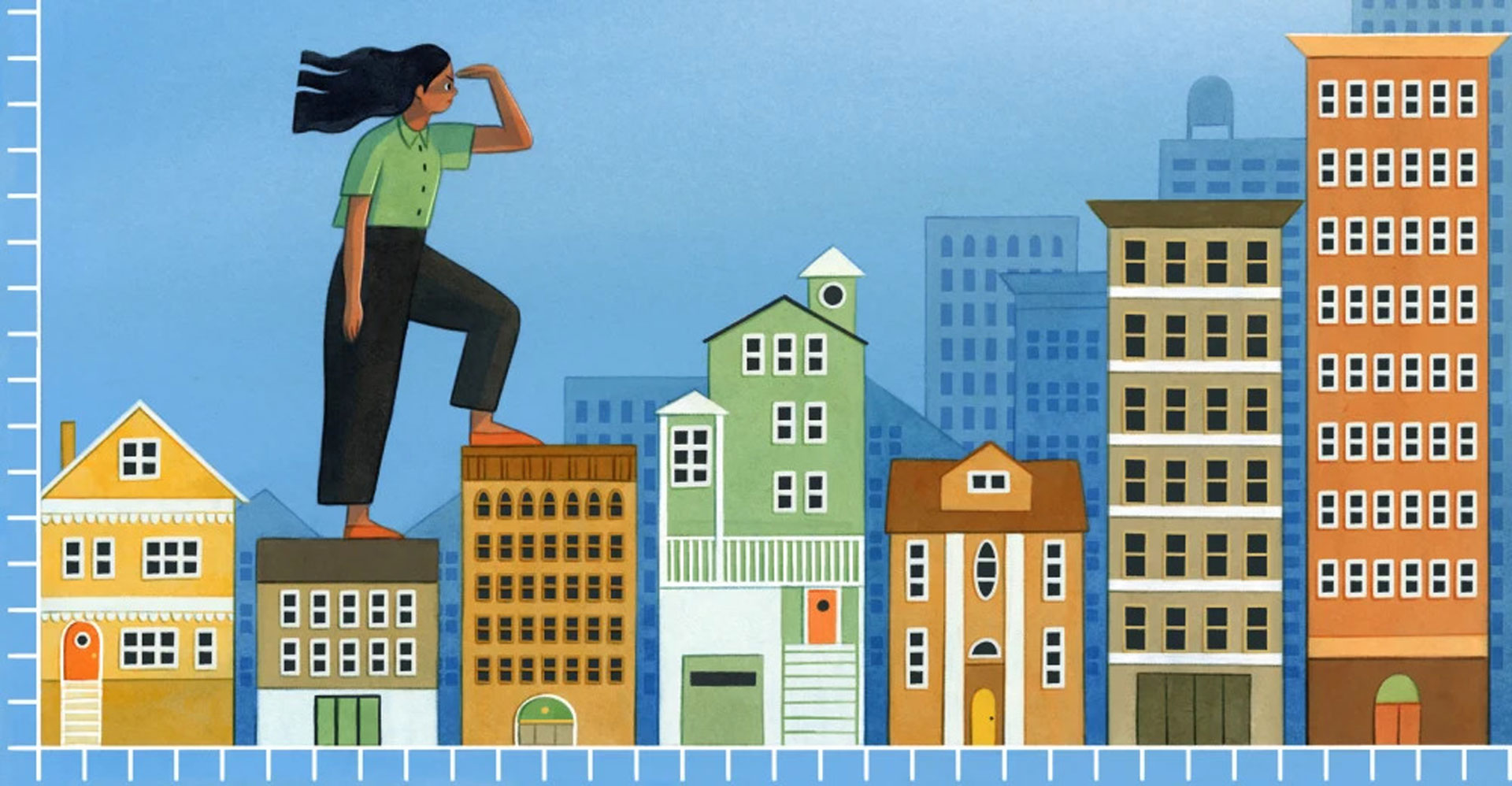Home Buying Hard? NBC's Index Reveals Your Local Challenge
Navigating the Housing Maze: Can You Afford a Home Right Now? The NBC News Home Buyer Index
Is the Dream of Homeownership Fading?
Buying a home. It's the quintessential American dream, right? But lately, it feels more like a distant fantasy for many. Why is it so darn hard? Prices have skyrocketed, outpacing middle-class incomes. Mortgage rates, while fluctuating, are still hovering above 6%, making monthly payments a real gut punch. And to add insult to injury, a staggering 30% of homes are selling above the asking price! It's a seller's market on steroids.
But those headline numbers don't tell the whole story. The challenges homebuyers face vary wildly depending on where you are. What's difficult in Boise, Idaho, might be a breeze in Buffalo, New York. That's where the NBC News Home Buyer Index comes in.
Introducing the NBC News Home Buyer Index: Your Local Guide
To cut through the noise and give you a clearer picture of the housing market at the local level, NBC News has launched a new monthly gauge: the NBC News Home Buyer Index. Think of it as your personalized weather report for the housing market.
This index, developed with the guidance of real estate industry analysts, experts from the Federal Reserve Bank of Atlanta, and other specialists, assigns a number between 0 and 100 to represent the difficulty a potential buyer faces. The higher the number, the harder it is to buy a home. A low index value, like 10, indicates much more favorable conditions for buyers.
How Does the Home Buyer Index Work?
So, how does this magic number get calculated? What factors are considered? Let's break it down.
Digging into the Data
The Index considers a range of factors, including:
- Median Home Prices: Are they soaring, stable, or sinking?
- Mortgage Rates: What are the prevailing interest rates in your area?
- Inventory Levels: How many homes are available for sale? A limited supply drives up prices.
- Days on Market: How quickly are homes selling? A short time on the market signals a hot market.
- Price Reductions: Are sellers dropping their prices to attract buyers?
- Percentage of Homes Sold Above Listing Price: This indicates how competitive the market is.
Local vs. National: Why It Matters
National averages can be misleading. Imagine wearing a parka in Miami because the average temperature in the U.S. is freezing. That's essentially what happens when you rely solely on national housing data. The NBC News Home Buyer Index drills down to the local level, giving you a much more accurate picture of the market you're actually dealing with.
Why is Home Buying So Difficult Right Now?
Okay, so the index tells us how hard it is to buy a home, but why is it so hard in the first place?
The Affordability Squeeze
The biggest challenge is affordability. Wages haven't kept pace with the relentless rise in home prices. Many potential buyers are simply priced out of the market. It's like trying to reach for a carrot dangling just out of reach.
The Interest Rate Rollercoaster
Mortgage rates have been on a wild ride. Even relatively small increases can significantly impact your monthly payments. Every point increase can add hundreds of dollars to your monthly cost, making it harder to qualify for a loan.
The Inventory Crisis
For years, we've been facing a shortage of homes for sale. This lack of inventory drives up prices and creates intense competition among buyers. It's like trying to grab the last slice of pizza at a party.
Tips for Navigating a Challenging Market
Don't despair! Even in a tough market, you can still find your dream home. Here are some tips to help you navigate the process.
Get Pre-Approved for a Mortgage
Knowing how much you can afford is crucial. Get pre-approved for a mortgage before you start your search. This shows sellers that you're a serious buyer and gives you a competitive edge.
Work with a Knowledgeable Real Estate Agent
A good real estate agent is your guide and advocate. They can help you find properties that meet your needs, negotiate effectively, and navigate the complexities of the buying process.
Be Prepared to Compromise
In a seller's market, you may need to make some compromises. Be flexible on your wish list and focus on your must-haves. Maybe you can't have that huge backyard right away, but you can always add a deck later.
Consider Alternative Locations
If you're struggling to find affordable housing in your desired area, consider expanding your search to nearby towns or neighborhoods. You might be surprised at what you find.
Think Outside the Box: Explore Different Home Types
Single-family homes aren't the only option. Consider condos, townhouses, or even manufactured homes. These can often be more affordable and offer a good starting point for first-time buyers.
The Future of the Housing Market
What does the future hold for the housing market? Will it become easier to buy a home? Predicting the future is always risky, but here are some factors to watch.
Interest Rate Trends
Keep a close eye on interest rate trends. If rates start to fall, it could ease affordability pressures and stimulate demand.
New Construction
Increased construction activity could help alleviate the inventory shortage and cool down the market. More houses being built means more choices for you.
Economic Conditions
The overall health of the economy plays a big role in the housing market. A strong economy typically leads to higher demand for housing.
Understanding the Home Buyer Index Number
Remember, the NBC News Home Buyer Index ranges from 0 to 100. Let's illustrate what those numbers actually mean in real-world terms:
Decoding the Numbers: A Scale of Difficulty
- 0-25: Extremely favorable conditions for buyers. Plenty of inventory, low prices, and negotiable terms.
- 26-50: Moderately favorable for buyers. A balanced market with some negotiation power.
- 51-75: Moderately challenging for buyers. Prices are rising, inventory is limited, and competition is increasing.
- 76-100: Extremely challenging for buyers. High prices, very limited inventory, and intense competition. Be prepared for bidding wars.
Tracking the Index: Stay Informed
The NBC News Home Buyer Index is updated monthly, so you can track changes in your local market and make informed decisions. Use it as a tool to help you time your purchase and negotiate effectively.
Conclusion: Empowering Homebuyers with Information
Buying a home is a big decision, and it's important to be informed. The NBC News Home Buyer Index is a valuable resource that can help you understand the challenges you face and make the right choices for your financial situation. By staying informed, working with professionals, and being prepared to compromise, you can increase your chances of achieving the dream of homeownership, even in a challenging market. Remember to check the index regularly and adapt your strategy accordingly.
Frequently Asked Questions
- What makes the NBC News Home Buyer Index different from other housing market reports?
- The NBC News Home Buyer Index focuses on providing a localized, real-time view of the housing market by combining several key metrics into a single, easy-to-understand number. It's more granular and frequent than many other reports.
- How often is the NBC News Home Buyer Index updated?
- The Index is updated monthly to reflect the most current market conditions. This allows buyers to track trends and make informed decisions based on the latest data.
- Where can I find the NBC News Home Buyer Index for my specific area?
- Check the NBC News website's real estate section for the most recent Home Buyer Index data. Search by state, county, or metro area to find information specific to your location.
- If the Home Buyer Index is high in my area, should I give up on buying a home?
- Not necessarily. A high index simply indicates a challenging market. You may need to adjust your expectations, be more patient, and work closely with a real estate professional to find the right opportunity.
- Does the NBC News Home Buyer Index predict future home prices?
- The Index doesn't predict future prices, but it provides valuable insights into current market trends, which can help you anticipate potential price movements and make informed decisions about when and where to buy.


